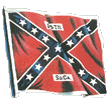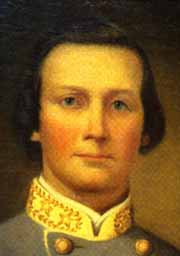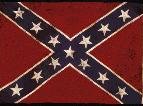|
The greatest loss the South ever suffered was not in 1865, it has happened and is happening today, even as you read this. In the south, both black and white are forgetting the oral tradition that has bound us together for so many years. We, in the south, have always felt that the story was as important as the fact. Very little can be learned from facts and much can be learned from stories. The following are stories that were told by the men of the Sixteenth. More accurately, they are the surviving fragments of stories told by the men of the Sixteenth. Where possible I have checked to see if the facts fit the stories. As an example, Dr. Stan Coleman told me the story of Joseph Coleman. I can confirm from service records that Joseph Coleman was captured in Atlanta. He eventually ended up in Camp Douglas and was shipped to New Orleans. He was paroled from the military hospital in New Orleans, very near the end of the war. This is how those who care to remember such things remember those stories. I am one of those who care very much about remembering. If you know of any such stories or fragments of stories, please forward them.
|







